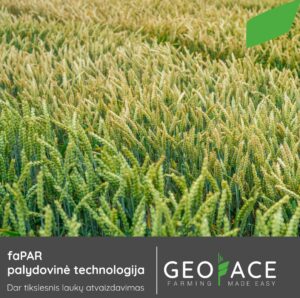Over time, atypical weather conditions have become an increasing source of anxiety and challenges for farmers. Agriculture is the sector that is most sensitive to a changing climate.
Winter frosts and rainstorms are statistically the most damaging to crops, but these problems are predicted to be soon overshadowed by increased solar intensity and drought risk. For these reasons, it is essential to find ways to increase agricultural efficiency, reduce losses, optimize processes, and increase yields.
Innovations in satellite technology – newer and better algorithms for agriculture can help to address these problems. The NDVI index is usually the best known, but one of the better algorithms is FAPAR, sometimes also called fAPAR or fPAR. This algorithm analyses the part of the solar spectrum that is absorbed by chlorophyll in plants. One of the main advantages of this technology is that the FAPAR index effectively models all the stages of plant growth and therefore allows for proper monitoring of changes in the field, whereas other algorithms are unable to monitor fields from the beginning of the growing season, as the algorithm includes the soil. In cases where the vegetation is the same throughout the field, we can use the contrast mode to see the best and worst parts of the field and to make appropriate decisions on whether to use a different cultivation technology or to change the tillage method.
GeoFace smart farm management uses these algorithms and technologies to get the best possible view of problem areas, monitor changes in fields during the growing season and predict future yields. With more accurate data, we can start talking about variable rate applications. Conserve nitrogen fertilizer. Only fertilize the areas where needed, do not over-fertilize areas likely to dry out and do not fertilize areas that will not produce the desired yield.
Another plus point of FAPAR is that satellite images and variable rate maps with this algorithm have a high resolution, even 10×10 meters. This precision allows you to work without fear of not fertilizing areas that do not need fertilizer.
With FAPAR you can maximize the potential of your land, take care of the environment and save time and money.



